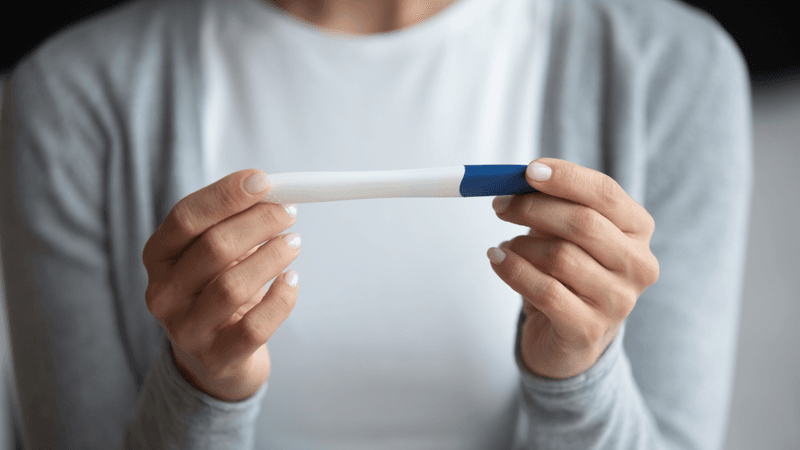Bad behaviour & divorce — does an affair affect the financial settlement?

We explore how adultery and other forms of misconduct fit into the current divorce framework and when behaviour affects the financial settlement.
Read more
We make the difference. Talk to us: 0333 004 4488 | hello@brabners.com
AuthorsJoe Ailion
7 min read

While assisted reproductive treatment (ART) opens doors to building families for those who might otherwise be unable to conceive, it requires thorough planning.
The choice of fertility treatment provider and the method used can have wide reaching implications when it comes to the legal parenthood of a child born through ART. Careful thought is required to ensure consistency between hopeful parents’ intentions and the legal status of their child.
Here, Joe Ailion looks at the pitfalls of legal parenthood — as determined by the Human Fertilisation and Embryology Act 2008 (HFEA 2008) — with a view to recent case law that has brought this issue into sharp focus.
Legal parenthood defines who a child’s parent is in the law of England & Wales and determines who’ll be treated as a parent for legal matters like birth registration, nationality and immigration, inheritance entitlements and financial responsibility for the maintenance of children.
It’s possible that an individual’s genetic or psychological parents may not be their legal parent. One such scenario includes when a child is born via artificial insemination. In some cases, that’s true even if everyone involved intends for a child’s legal parenthood to follow their social parenthood and care arrangements. The method of artificial insemination and the fertility clinic used (if any) can significantly change the position.
It’s important to note that legal parenthood is different from parental responsibility.
With assisted insemination, the person who gives birth to the child will be the mother. The law on that point, at least, is unequivocal.
The identity of the legal father (or second legal parent) often starts with two ‘common law’ principles. The first is that a child’s biological parents will be their legal parents. The second is a ‘presumption of legitimacy’ — that if a birth mother is married, the father will be presumed to be their spouse, unless evidence can be shown to the contrary. This is because the biological link between child and husband would be presumed as a result of the marriage.
However, it’s possible for these principles to be expanded upon, changed or rebutted.
For families using assisted reproduction, the HFEA 2008 largely replaces the ‘common law’ reliance on (and presumption of) biological relationship to the child. This enables families to be created by donated gametes, so long as they comply with the requirements and procedure within the HFEA 2008.
For unmarried couples receiving artificial insemination treatment using donated sperm at a UK-based fertility clinic that’s registered with the reproductive medicine regulator — the Human Fertilisation and Embryology Authority — the non-birthing partner will also be the second legal parent, provided that all consent forms are correctly prepared and signed throughout the entire process.
Unmarried partners to mothers who receive artificial insemination treatment either abroad or outside of a registered clinic (including at home in a ‘DIY’ treatment arrangement), will not be a legal parent for the purposes of the law in the United Kingdom.
Here lies the problem for many who wish to start a family using donated sperm but seek to avoid the often prohibitive cost of treatment at a clinic in the UK (especially those who aren’t married). In doing so, they risk a legal reality in which one of the intended parents has no legal connection to a child and a sperm donor who’s actually a legal parent and potentially carries the financial responsibilities this brings.
Despite the intentions of those involved, ‘natural insemination’ through sexual intercourse isn’t sperm donation or assisted reproduction. It’s simply having a baby.
The legal principles that protect the legal parenthood of non-birth ‘parents’ that arise from the HFEA 2008 can’t apply here.
In the recent case of P v Q & Others [2024] EWFC 85 (B), a birth mother had applied for a Declaration of Non-Parentage to establish that her wife — from whom she had separated — was not her child’s legal parent but rather that was a man who had previously been understood to be their sperm donor.
She and her wife had been attempting to conceive a much wanted child. They attempted to do so by ‘DIY’ home insemination — outside of a clinical setting — using sperm donated by a man they had met informally. While attempting and struggling to conceive in this way, the birth mother had met up with the sperm donor — in secret, without the knowledge of her wife — and had sex with him.
Whether the child was conceived through their attempts at non-sexual artificial insemination or simply through their sex was legally very important. If the former, the principles set out in the HFEA 2008 (identified above) would apply and the wife would be treated as the legal parent unless she didn’t consent to it. If the latter, the ‘sperm donor’ would be the legal father in her place. That’s because ‘natural insemination’ isn’t assisted reproduction and falls outside the auspices of HFEA 2008.
This places the Court in an impossible position. How could it possibly determine which ‘method’ had led to the conception of the child in question? While the parties gave extensive evidence, we’ll spare you the details here. The upshot is that the Court couldn’t consider either fact to be proven.
Because the Court wasn’t satisfied that it could find that the child was born through assisted reproduction, it couldn’t find that the laws on parenthood as set out in HFEA 2008 applied. Therefore, it found itself having to apply the ‘common law’ principles (as above) — that legal parenthood is led by biology unless other legislation applies. The relevance of marriage to this, the Court explained, was limited to who could be presumed to be a biological father. In the case of two married women — one of whom had had sex with a third-party man and potentially conceived a child — their marriage couldn’t create a ‘presumption of legitimacy’ that replaced the biological reality that the ‘sperm donor’ was the child’s legal father (as opposed to the social, emotional and psychological parent, who was undoubtedly the wife in this instance).
The Court found itself in the unenviable position of having to make a declaration of non-parentage in respect of the birth mother’s wife. It clearly did so with a huge amount of sympathy for her — who the Judge acknowledged must now come to terms with the change in her legal recognition for a child she no doubt has always considered very much her own. However, the Court commented that this case was “a cautionary tale about the consequences for a child and for a same-sex couple of both deceit as to how that child came to be conceived and the unreliability of informal arrangements for artificial insemination”.
This case stands to highlight the importance of legal advice, planning and thought when embarking on family planning — especially when using donated gametes and particularly when outside of an HFEA-licenced clinic in the UK.
If you’re looking to build a family, our award-winning family team is home to some of the most experienced and well-regarded fertility law specialists in the UK.
Whether you wish to explore your available routes to parenthood or have a legal issue arising from your family’s circumstances, we’re committed to guiding you through the technicalities and achieving the very best outcome.
Talk to us by completing our contact form below or call us on 0333 004 4488.

Loading form...

We explore how adultery and other forms of misconduct fit into the current divorce framework and when behaviour affects the financial settlement.
Read more

We explore how the courts approach trusts on divorce and outline the key considerations for dealing with them after separation.
Read more

We explore how decisions around schools are made, the processes available to help parents to reach agreement and the court’s approach when they can't.
Read more